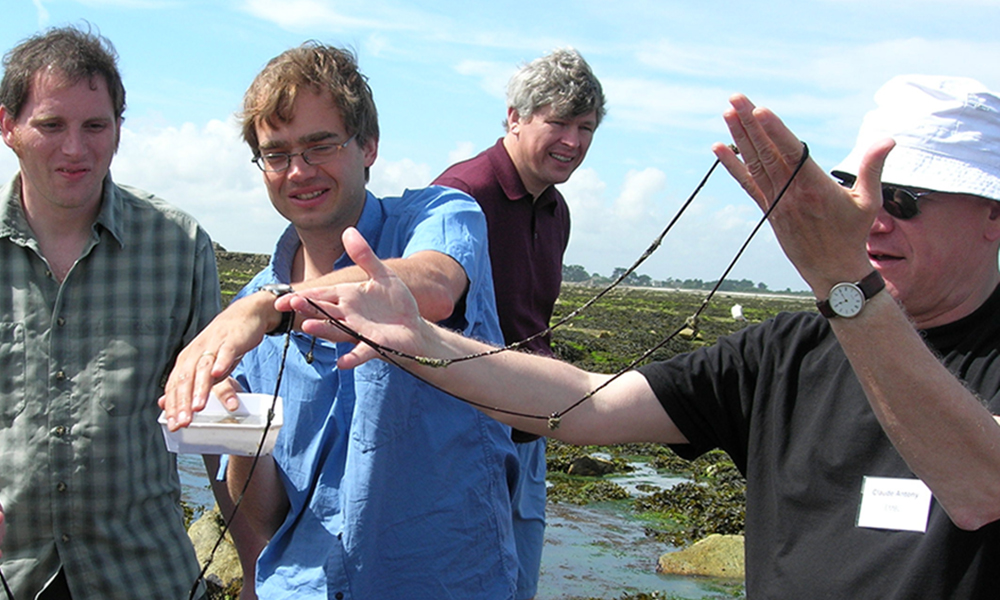Flashback Friday: Group leaders face to face with sea creatures in partnership talks

The following is an EMBLetc. article from issue 34 in August 2006 about the then fledgling partnership with the Station Biologique de Roscoff. This partnership has retained its importance and in 2023, served as the geographic starting point for EMBL’s Traversing European Coastlines (TREC) expedition – a key component in EMBL’s Planetary Biology research transversal theme.
A group leader’s interest in marine biology has helped lay the foundations for a brand new EMBL Partnership.
Detlev Arendt’s lab studies the marine ragworm Platynereis to get a handle on the evolution of the animal brain. He led an initiative to hold a mini-conference for faculty members of EMBL and the Station Biologique de Roscoff (SBR) to explore possible areas of collaboration.
Several EMBL group leaders and core facility heads met Roscoff staff at the three-day meeting on 10-12 July, which took place at SBR’s beautiful coastal location in Brittany in northwest France. The programme of presentations and roundtable discussions left time for a field excursion of the marine biology station’s variety of biotopes – at low tide of course.
“There were very positive signals that a partnership with Roscoff is something from which several labs on both sides would gain a great deal,” says Detlev. “The meeting was a great chance for the faculty members to get to know each other and find more about all our areas of expertise.
 “Exploring new territories is at the heart of EMBL Partnerships.”
“Exploring new territories is at the heart of EMBL Partnerships.”
“While Roscoff would benefit from access to our core facilities and the possibility to increase their activity in several fields of molecular biology, EMBL would gain by having access to the huge diversity of marine species available at the SBR.”
Detlev’s lab isn’t the only one that has already forged solid links with the SBR. Elena Conti’s lab has collaborated with scientists at the station to look at how animals living at hydrothermal vents adapt to the high temperatures and produce proteins that can withstand higher than 40oC – a question that could have a huge impact on the process of protein purification.
“Exploring new territories is at the heart of EMBL partnerships,” says Detlev. “SBR has very specialist knowledge of oceanography, ecology and marine chemical biology, and these are areas to which we don’t usually have access.”
The potential partnership is currently under discussion by representatives of the CNRS, SBR, the Université Pierre et Marie Curie (Paris VI) and EMBL and, if approved, will join a growing list that already includes the MMPU, the PSB, the CRG and the Partnership with the Sars International Centre for Marine Molecular Biology.
This article was originally published in EMBLetc., issue 34 in August 2006. Find more stories related to EMBL’s TREC expedition here.
Related Links
In pictures: the story of TREC